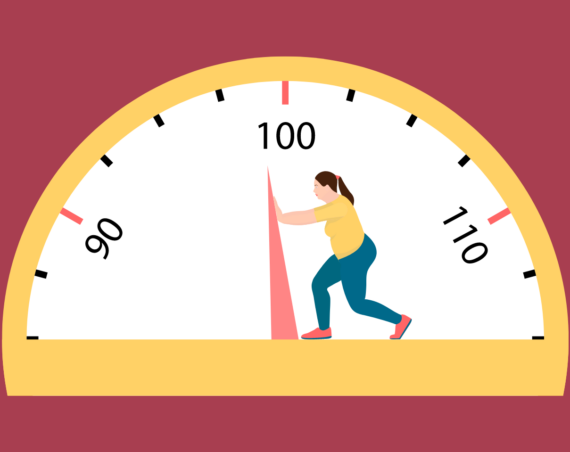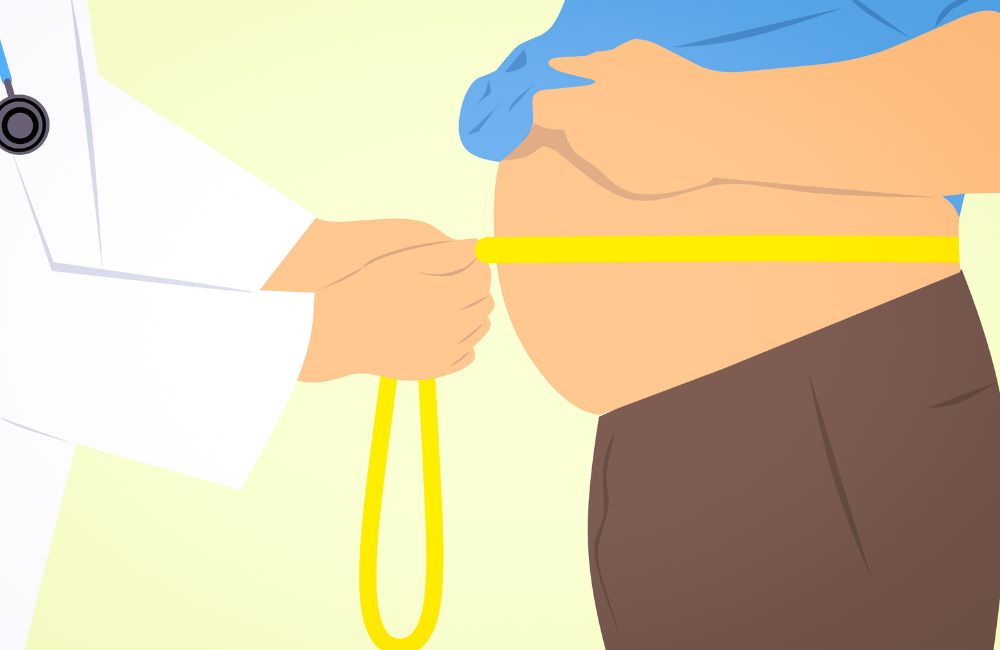
Want to lose weight fast in a month? This is how much weight you can expect to lose in 1 month safely, according to science.
Obesity is a serious health problem in the world today. In America specifically, nearly half of our population is obese, with another huge chunk falling into the “overweight” category.
For this reason, there are many people out there who are desperately looking for ways to lose weight quickly.
Unfortunately, weight loss doesn’t happen quickly. It takes time to lose weight, and the more you lose, the longer it takes to do so (1).
That being said, we have a good understanding of how overweight individuals can safely lose weight as quickly as possible. In this article, we’ll discuss the topic of how much weight can be safely shed in a month. After that, we’ll take a look at some top tips for losing weight safely and sustainably.
Also, check out:
- How to Lose 30 Pounds In a Month: 12 Simple Steps, Backed by Science
- The Boiled Egg Diet to Lose 20 Pounds In Just 2 Weeks
- How to Lose 20 Pounds In a Month: 8 Science-Backed Steps
The Principle of Weight Loss

In order to lose weight, you really only need to consider one key item: calories.
As humans, calories are our energy source. They allow us to move, think, breathe, and perform every function of the human body (2).
Within nature, we find calories in three main forms: proteins, carbohydrates, and fats.
Most foods contain all of these substances (called macronutrients) in varying amounts. Regarding weight loss or gain, our food sources are colloquially referred to as our “calories in”.
The other side of the calorie coin is our “calories out”. This refers to things we do that require energy, such as exercise and metabolic processes.
In general, when our calories in exceed our calories out, we gain weight. When our calories out exceed our calories in, we lose weight. This explains every case of true weight gain, regardless of whether it is related to a medication, a disease, or simply lifestyle habits.
Safe Weight Loss
In the previous section, I outlined the best available theory of weight loss: calories in vs. calories out.
While this may sound simple, this is a proverbial case of “easier said than done”.
Weight loss is not easy, there’s no doubt about it. It takes serious dedication and hard work to lose weight. When it comes to safely lose weight, there are a few important considerations you should make.
Slow and Steady Wins the Race
When we commit to losing weight, we want to do it as quickly as possible. However, it’s important to remember that losing weight slowly leads to the best outcomes.
Slow weight loss ensures that we lose mostly fat mass, and preserve lean tissue mass. When we lose fat very quickly, the opposite is true. Fast weight loss can often lead to a phenomenon known as “skinny fatness”. This is not an outcome that anyone wants!
Depending on how much weight you have to lose, you should aim to reduce your calorie intake by roughly 500-1000 calories per day. In a seven-day week, this translates to one to two pounds of weight loss each week.
Fad Diets Aren’t Necessary
If you were to read every diet book that’s ever been published, you might be reading it for the rest of your life.
There are so many fad diets out on the market that propose “instant”, “lasting”, and “unbelievable” weight loss. However, most of these diets are dangerous, based on faulty science or both.
Low-carb diets, low-fat diets, and other plans may help you lose weight. But this is only true if they lead to a calorie deficit.
You Can’t Out-Exercise a Bad Diet
Some people think that they can simply exercise harder for longer, and continue eating whatever they want in order to lose weight. Unfortunately, this rarely works out.
In order to lose weight simply by adding exercise instead of cutting calories, you need to perform such intense exercise that your body may not be able to handle it.
In fact, many people who try to out-exercise a bad diet suffer injuries and get set back even further on their weight loss journey.
Realistic Goals are Critically Important
In the end, the most important aspect of weight loss relates to the goals you set. For instance, if you want to lose 100 pounds, this may not be realistic based on your individual body characteristics.
Therefore, it’s crucial that you determine what a safe weight will be for you based on your BMI and ideal body weight. This will help you set goals that are both realistic and sustainable.
So, How Much Weight Can You Lose in a Month?
Based on what we’ve discussed so far regarding safe weight loss, we see that losing about a pound or two a week is appropriate for most people. So, this means that within a month period, you can safely lose between four and eight pounds.
While this might not seem like much, just remember that the weight you lose at this slow pace will be mostly composed of fat tissue. Plus, a slow weight loss plan will help you to sustain this change, as it will be a gradual change for your body rather than a quick shock to your system.
Tips to Lose Weight in a Month
Now, let’s take a look at some of the top tips for losing weight safely in 30 days.
Eat One-Ingredient Foods
One of the biggest issues facing those who are trying to lose weight is that they have trouble giving up processed, chemical-laden foods. These foods are often highly-palatable and extremely calorically dense.
In order to lose weight, I encourage people to stay away from these multi-ingredient, processed foods in favor of one (or two) ingredient foods. By one-ingredient foods, I mean meat, fruits, vegetables, nuts, and seeds. These foods are full of nutrients and will keep you full with fewer calories.
Don’t Drink Your Calories
Sodas and alcoholic drinks are extremely high in calories. Swapping out your daily soda for a glass of water can go a long way toward achieving a calorie deficit. Plus, eliminating this sugar from your diet will improve your health in a variety of other ways as well.
Don’t Eat at Restaurants
When possible, you should cook all of your own food. This is truly the only way to know the exact calorie content of your food.
Restaurants will often sneak in extra oil and calories in order to improve the flavor of their meals. While eating out once a week or less might be ok, you should try to limit your restaurant visits in order to continue on your path to weight loss.
Move as Much as You Can
While exercise shouldn’t be the primary method you rely on to lose weight, you should still be sure to get some daily movement in.
Walking, biking, running, swimming, and other forms of exercise can go a long way toward keeping your body healthy and fit as you work towards your weight loss goals.
Conclusion
Losing weight is a constant battle. There are temptations at every turn, and you may fall off the wagon at one point or another.
However, all that matters is that you continue to pick yourself back up when you stumble. Soon enough, you’ll reach your goal weight and enjoy a healthy, fit life.
Works Cited
- Koliaki, C., Spinos, T., Spinou, Μ., Brinia, Μ. E., Mitsopoulou, D., & Katsilambros, N. (2018). Defining the Optimal Dietary Approach for Safe, Effective and Sustainable Weight Loss in Overweight and Obese Adults. Healthcare (Basel, Switzerland), 6(3), 73. https://doi.org/10.3390/healthcare6030073
- Bales, C. W., & Kraus, W. E. (2013). Caloric restriction: implications for human cardiometabolic health. Journal of cardiopulmonary rehabilitation and prevention, 33(4), 201–208. https://doi.org/10.1097/HCR.0b013e318295019e
- Pervaiz, S., Li, G., & He, Q. (2021). The mechanism of goal-setting participation’s impact on employees’ proactive behavior, moderated mediation role of power distance. PloS one, 16(12), e0260625. https://doi.org/10.1371/journal.pone.0260625


